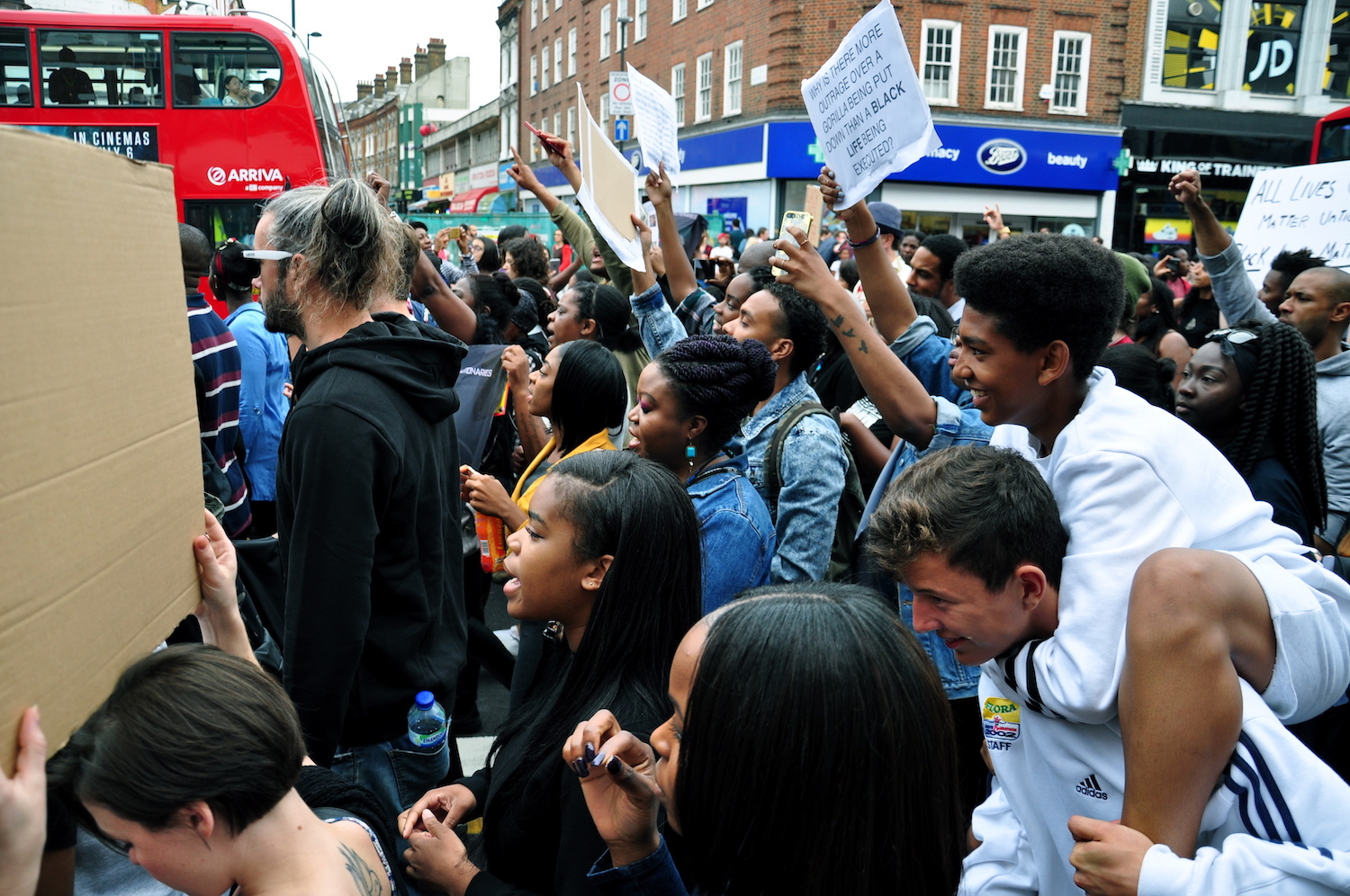The murder of Trayvon Martin in 2012 was the spark that set off a wildfire. George Zimmerman gunned down the unarmed 17-year-old without remorse. In 2013, he was acquitted of second-degree murder and a lesser charge of manslaughter. In response, one of the defining movements of the decade was born.
Black Lives Matter was founded in the wake of Zimmerman’s acquittal by three queer black women, Patrisse Cullors, Opal Tometi, and Alicia Garza. In their words, it is “an ideological and political intervention in a world where Black lives are systematically and intentionally targeted for demise.” Their movement has galvanized hundreds of thousands of activists worldwide and ushered in a new era of queer-affirmative, woman-led, intersectional activism that has mobilized across the lines of race, gender, and class to forge a movement with few parallels.

The deaths of Alton Sterling and Philando Castile last week were two more tragic additions to an ever growing list of black victims killed by systemically racist power structures: from Trayvon Martin, Eric Garner, and Mike Brown in the USA to Sarah Reed, Kingsley Burrell, and Mark Duggan in the UK. Institutional racism sanctions violence against black bodies on an industrial scale.
London Black Revolutionaries, an organization fighting for working class black communities ravaged by structural racism and government-led austerity called Saturday’s protest in the wake of the shootings of Philando Castile and Alton Sterling. Birmingham also held a protest, gathering hundreds of protesters in memory of Kingsley Burrell, who died in suspicious circumstances in police custody in 2011. “It’s about solidarity, internationally,” explained Arnie Hill, an activist and organizer at London Black Revs.
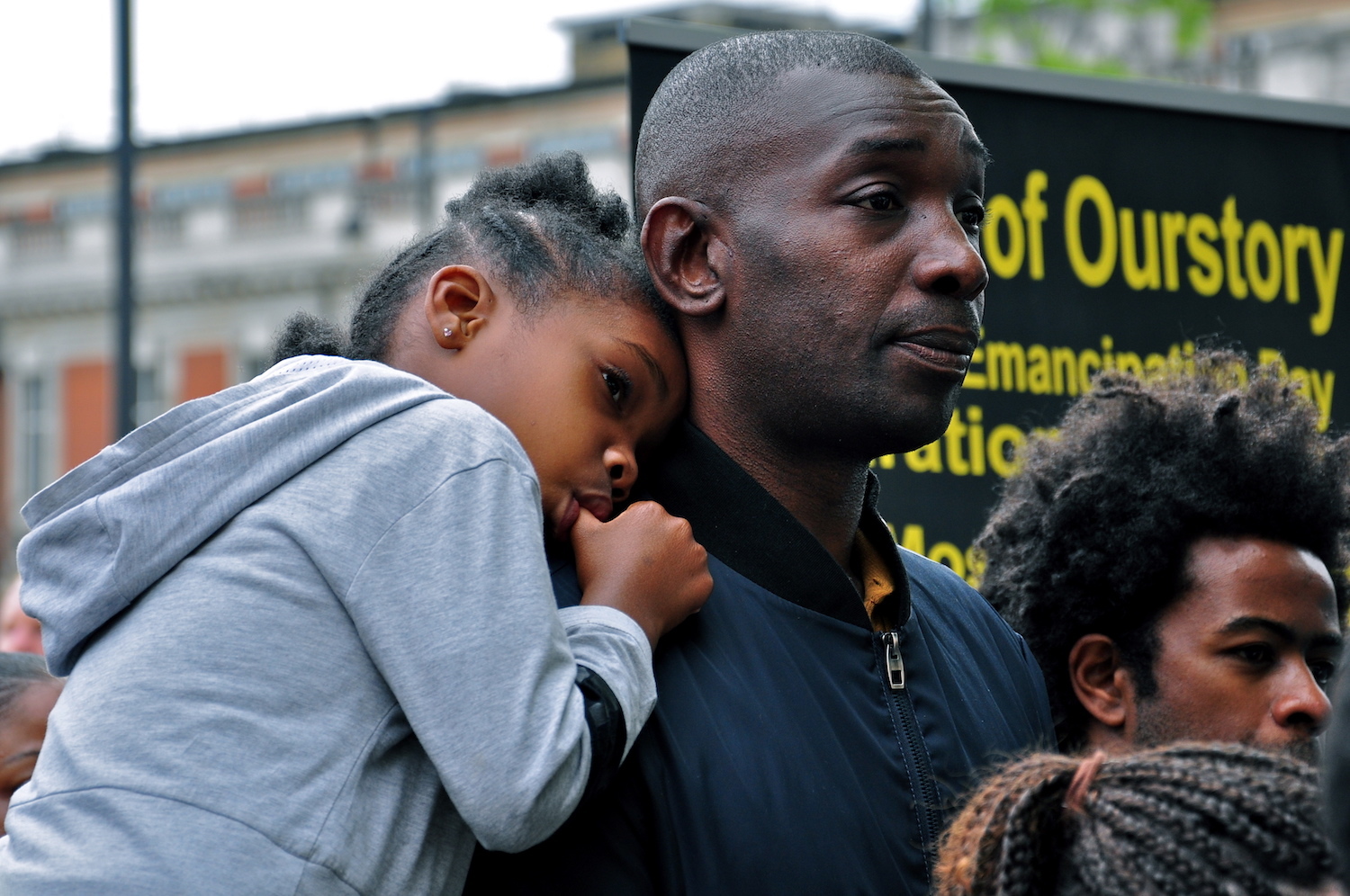
“Politicians’ promises are falling on deaf ears: institutional racism is at the heart of the police system, in the USA and the UK and reform will not be achieved by symbolic, grandiose statements,” he explains. “There has to be fundamental reform, if there even can be reform within the police as it stands. That means on a psychological level, a political level, and social level, its through policies and training” — a host of reforms that will stop the incarceration and murder of black people across the UK and US.
Thousands gathered in solidarity, with chants of “Black Lives Matter,” “Hands Up, Don’t Shoot,” and “No Justice, No Peace” echoing through the Brixton streets. The march ensued, and speeches on police brutality, black-led financial boycotts of racist organizations, and white indifference electrified the streets of South London with mourning and militancy. i-D headed down to speak to the activists leading the charge.
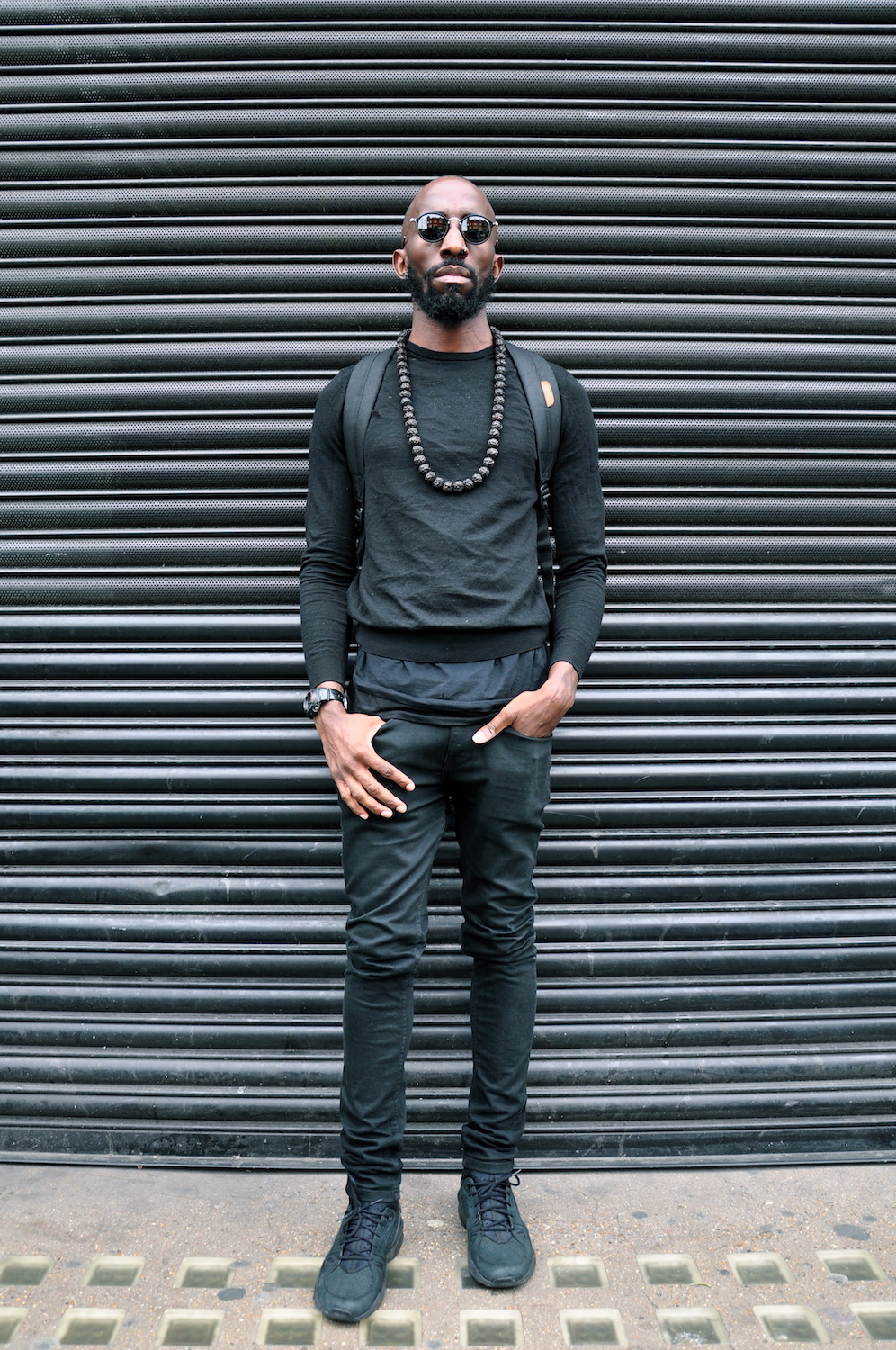
Ezra
Why are you here today?
I’m here because I’m exhausted. People need to be made accountable and made aware that black people are dying. I need to hear noise, and I’m sick of people being silent. And I’m here because I need to make a visible contribution: for too long we have been erased and excluded from representation and spaces. We have to come out here and reclaim the streets.
What needs to change in the UK?
For years, there have been people in the UK who have gone into police custody alive and come out in coffins. I am tired of people who look like me being murdered. I’m tired of people who look like my mother being raped by white, male police officers. White comfort has killed so many people because people are so comfortable ignoring what’s going on around them. When black people speak, white people need to start listening.
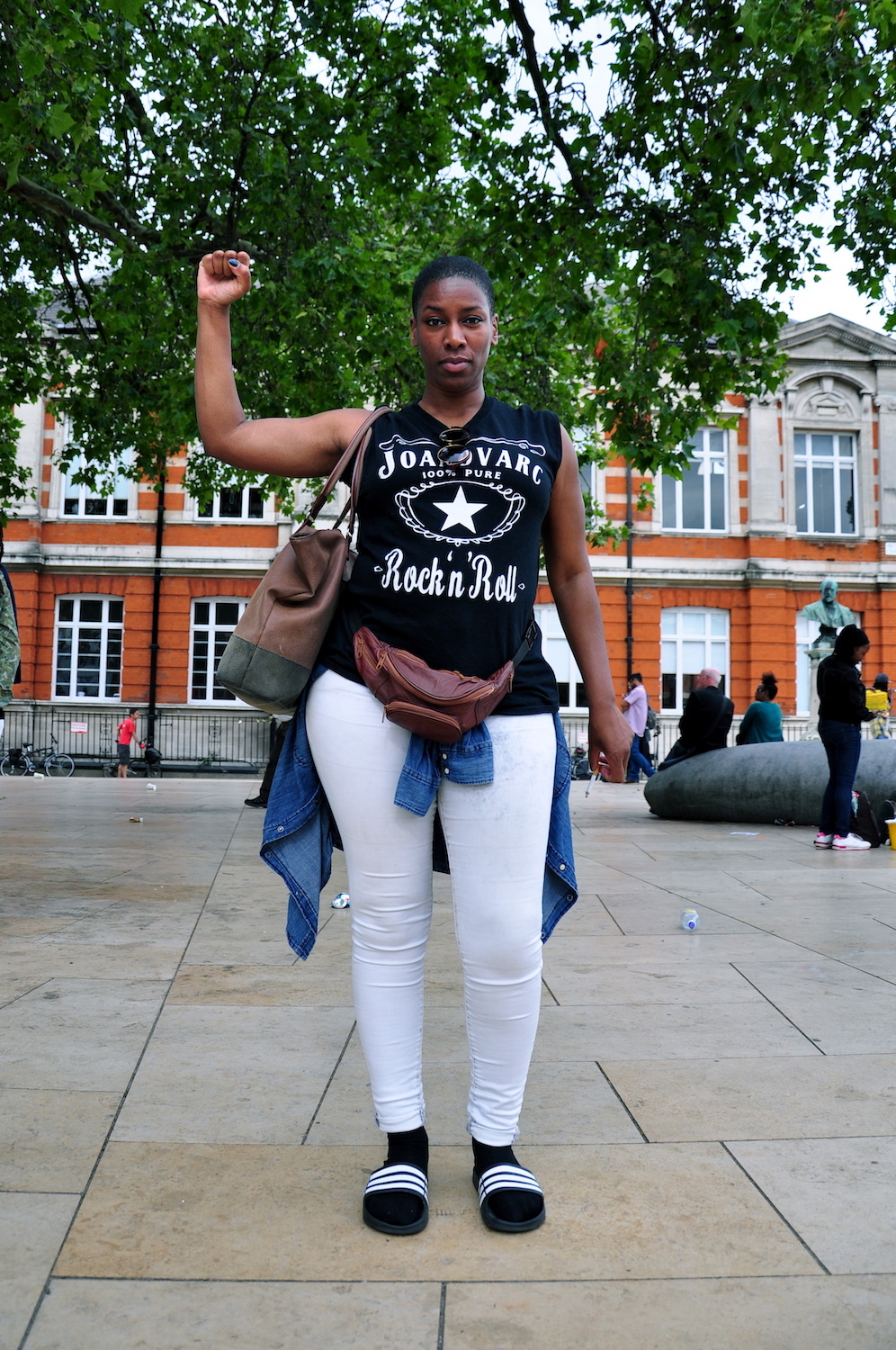
Caroline
Why are you here today?
I need it to stop. I need violence against all human beings to stop, but as a black woman I feel particularly connected to Black Lives Matter. I’m here to be heard, to be part of the movement, to be part of what needs to happen next. I’m here to see the revolution take shape.
Do you think there’s awareness that Black Lives Matter was founded by three queer black women?
Of course not. There could be that awareness, but obviously it has been erased — like it always is with black women. It’s bullshit, but people are starting to wake up to it.
What’s your message to Black Lives Matter activists in the USA right now?
No matter where we are in the planet, we’re a family: when you hurt, I hurt; when you fight, I will fight alongside you no matter where I am.
What’s your message to the UK government?
We have been speaking, and you have not been listening: the change we need isn’t going to come from some symbolic speech on Channel 4 while people are sitting at home with a cup of tea. So we’re taking it into our own hands. Stand with us, or you might get crushed along the way.
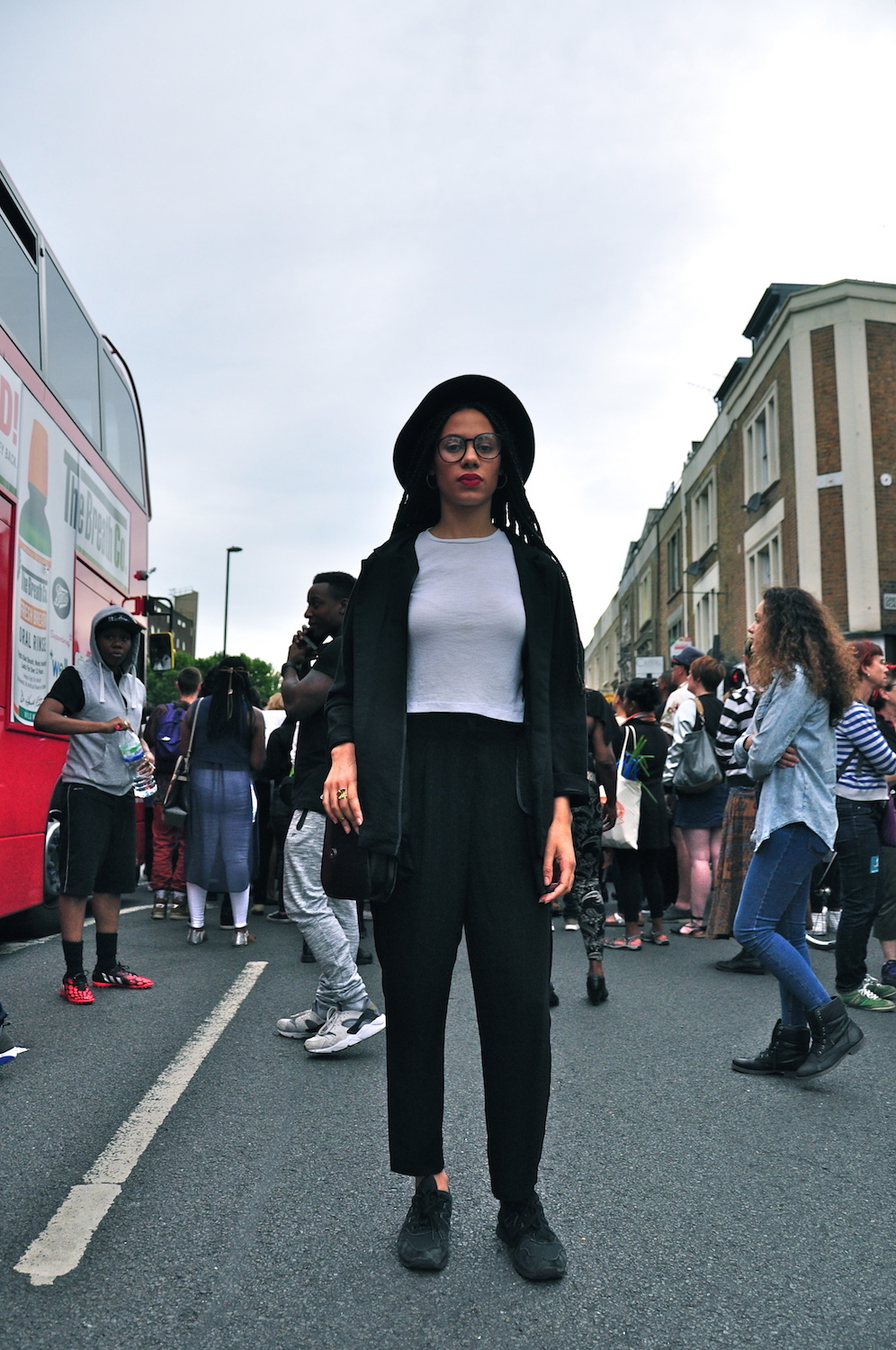
Esme
Why are you here today?
I’m here because I’m absolutely sick of the way black bodies are abused by those in positions of power. Black people are not being respected, and so I’m here to stand in solidarity with all people of color being killed across the world day in, day out.
Is there awareness in the UK of institutional racism and police brutality?
Not enough, no. Sarah Reed and Sheku Bayoh are just two names of thousands who have died in police custody over the years. People are getting arrested, and they’re turning up dead. Why isn’t more being done?
What’s your message to Black Lives Matter activists in the USA right now?
We see you, and we want you to see us.
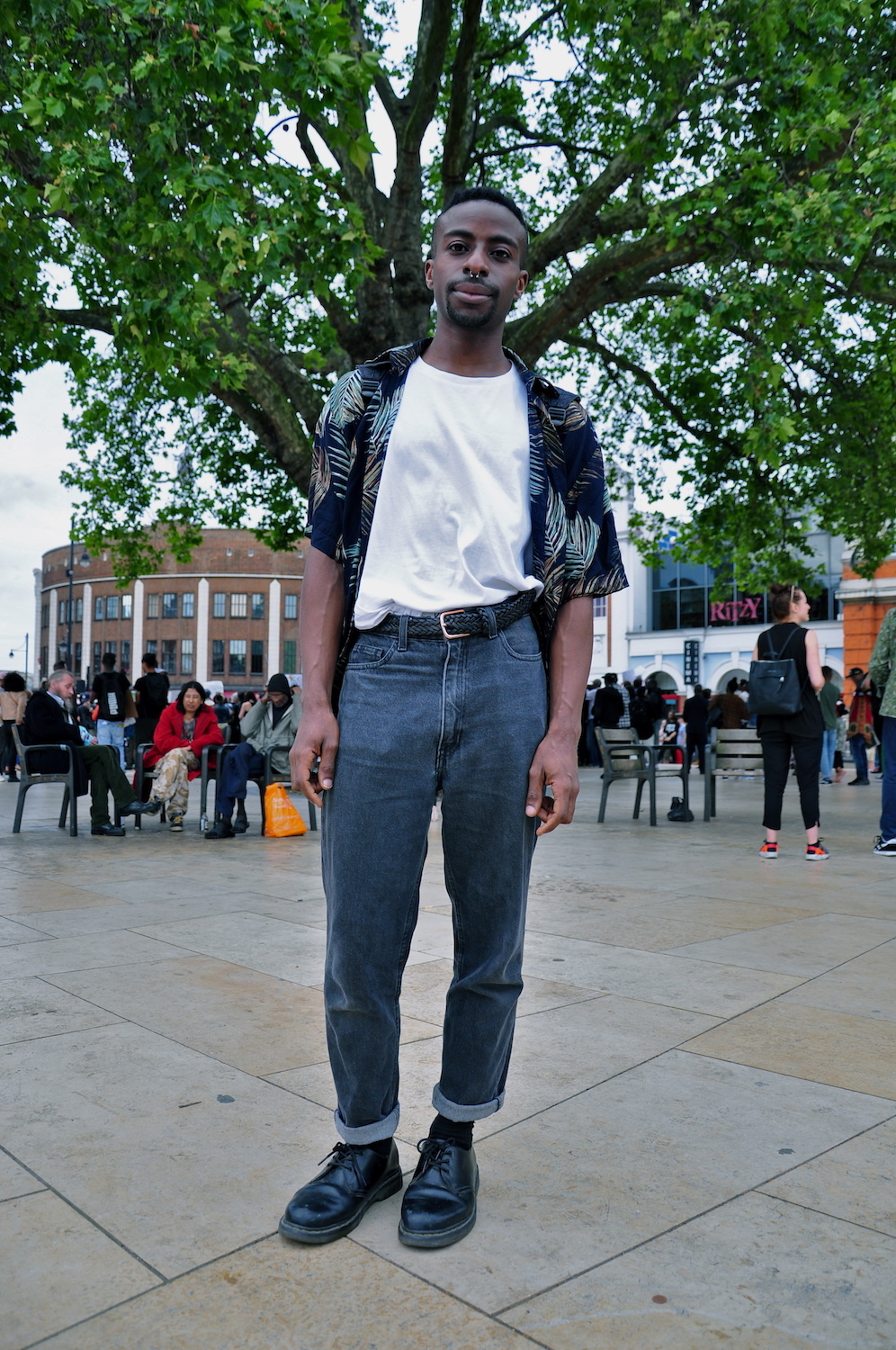
Ola
Why are you here today?
I’m very vocal on social media about Black Lives Matter, injustice, and the ongoing black genocide. As a black person, especially as a queer black person, I felt I had to be here to speak out about police brutality.
How did you feel when the news of Alton Sterling and Philando Castile surfaced?
It’s just so constant. I was frustrated, I was sad, but there was also a kind of numbness — when it’s all over your newsfeed, you almost become detached. Like, “Oh shit, it’s happened yet again.” It cannot continue.
What’s your message to Black Lives Matter activists in the USA right now?
Keep on galvanizing the movement: it resonates here, it speaks to our experience too, it has given people a voice, and has encouraged people to speak out. It is an amazing thing they’re doing, and they need to keep on at it.
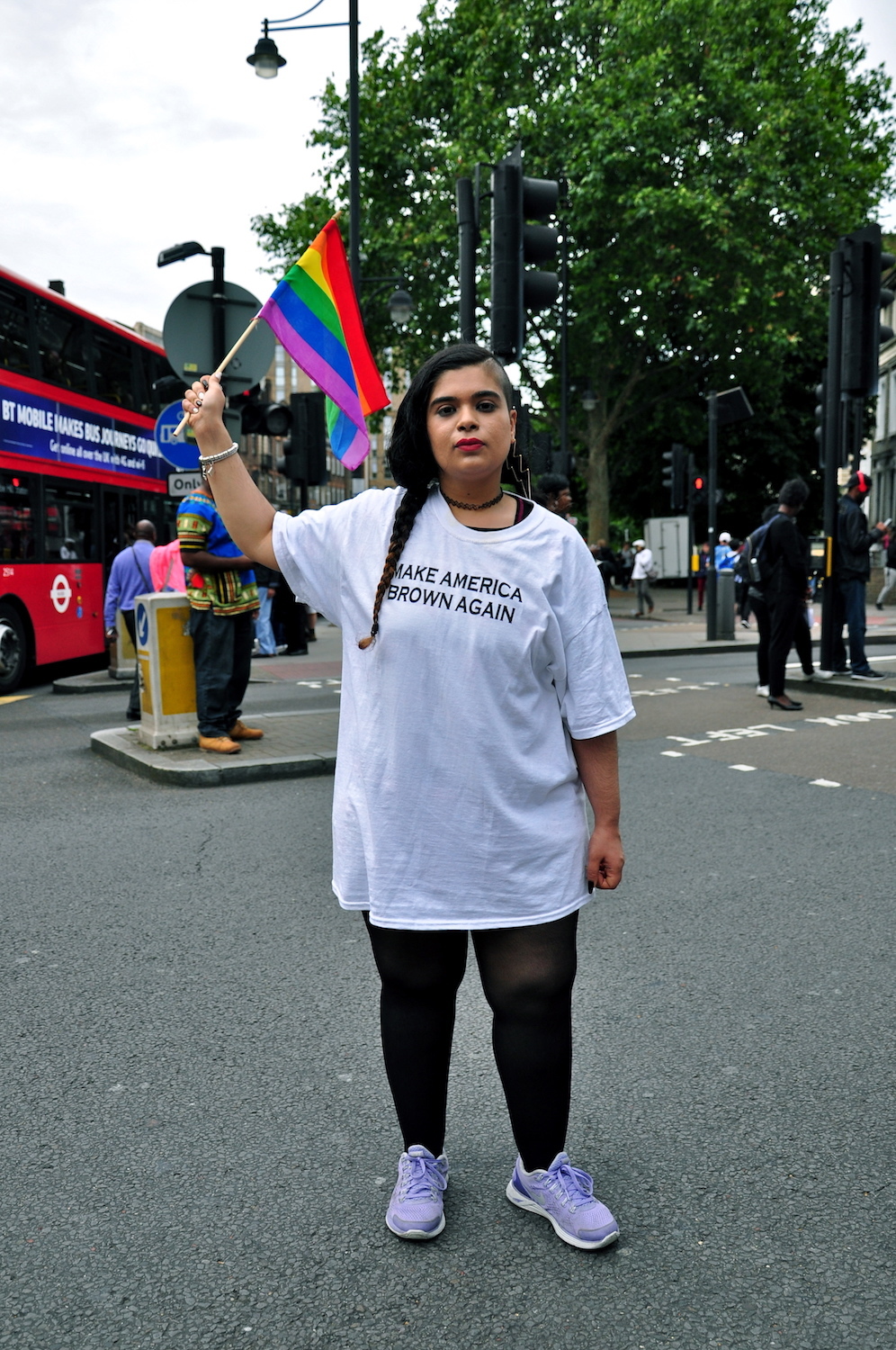
Noorulann
Why are you here today?
I’m here to show solidarity with Black Lives Matter, to protest against police brutality in the UK and the USA, and to stand up against racism with our black allies and say that we are against white supremacy and oppression in all forms. Brown and black bodies are not dispensable objects.
Are people aware of issues of police brutality in the UK?
Generally, no. Whenever we look at the US there’s a certain naiveté that this doesn’t happen here. Kingsley Burrell, Sarah Reed — these are just two examples of people killed by police brutality. From stop and search policies that disproportionately target people of color to Prevent [an anti-terrorism initiative that has been criticized for Islamophobia and spying on students] in higher education, there’s so much to be done in the UK too. It isn’t so explicit as in the US, but it happens here.
What’s your message to Black Lives Matter activists in the USA right now?
We stand with you, particularly the queer people of color in the movement. That’s why I’m here, with the rainbow flag and the trans flag. Trans people of color are disproportionately affected by police brutality, we are on the fringes of society, and a lot of us are forced into sex work, homelessness and incarceration. We see you.
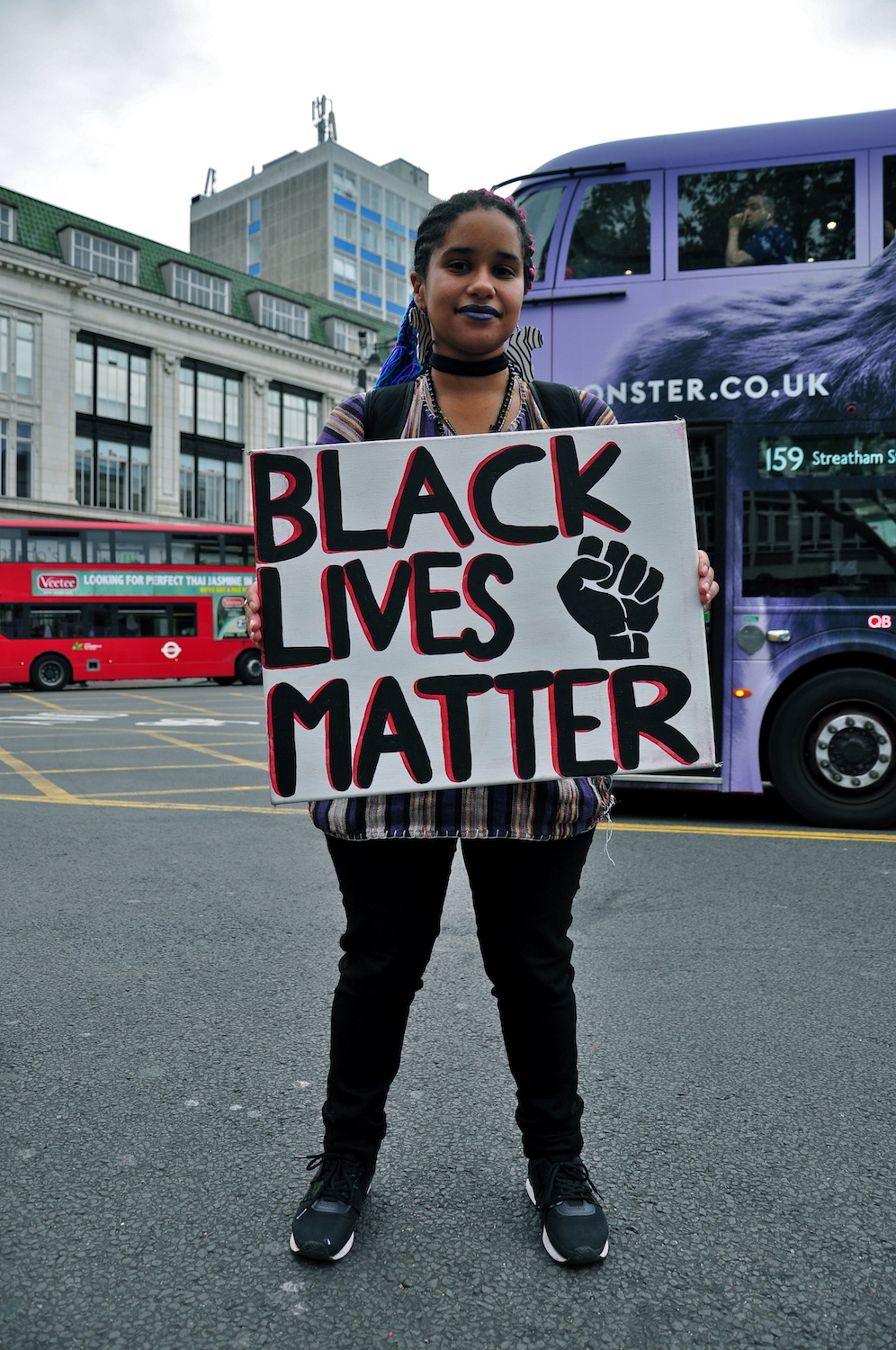
Subira
Why are you here today?
I’ve been so devastated and horrified by the news from the US and I firmly believe we’re stronger together.
What’s your message to Black Lives Matter activists in the USA right now?
We are here with you and we are here for you: we want to help, to fight with you, and I can’t even imagine how hard it must be to wake up black in America. It’s hard enough over here, but over there… I just want to send power, love, and strength.
Message for Cameron?
Step the fuck up.

Halimah
Why are you here today?
Because black lives matter, and because institutionalized racism is an issue worldwide. It’s time for change.
Racial hate crimes have soared in the UK since Brexit. How has that felt? Are the police and the media doing enough?
Racism has just become more explicit: it has always been there, and Britain was built on racism through its colonial projects. Brexit has only brought that to the fore and made people more confident and more open in their racism. It’s scary, and not enough is done.
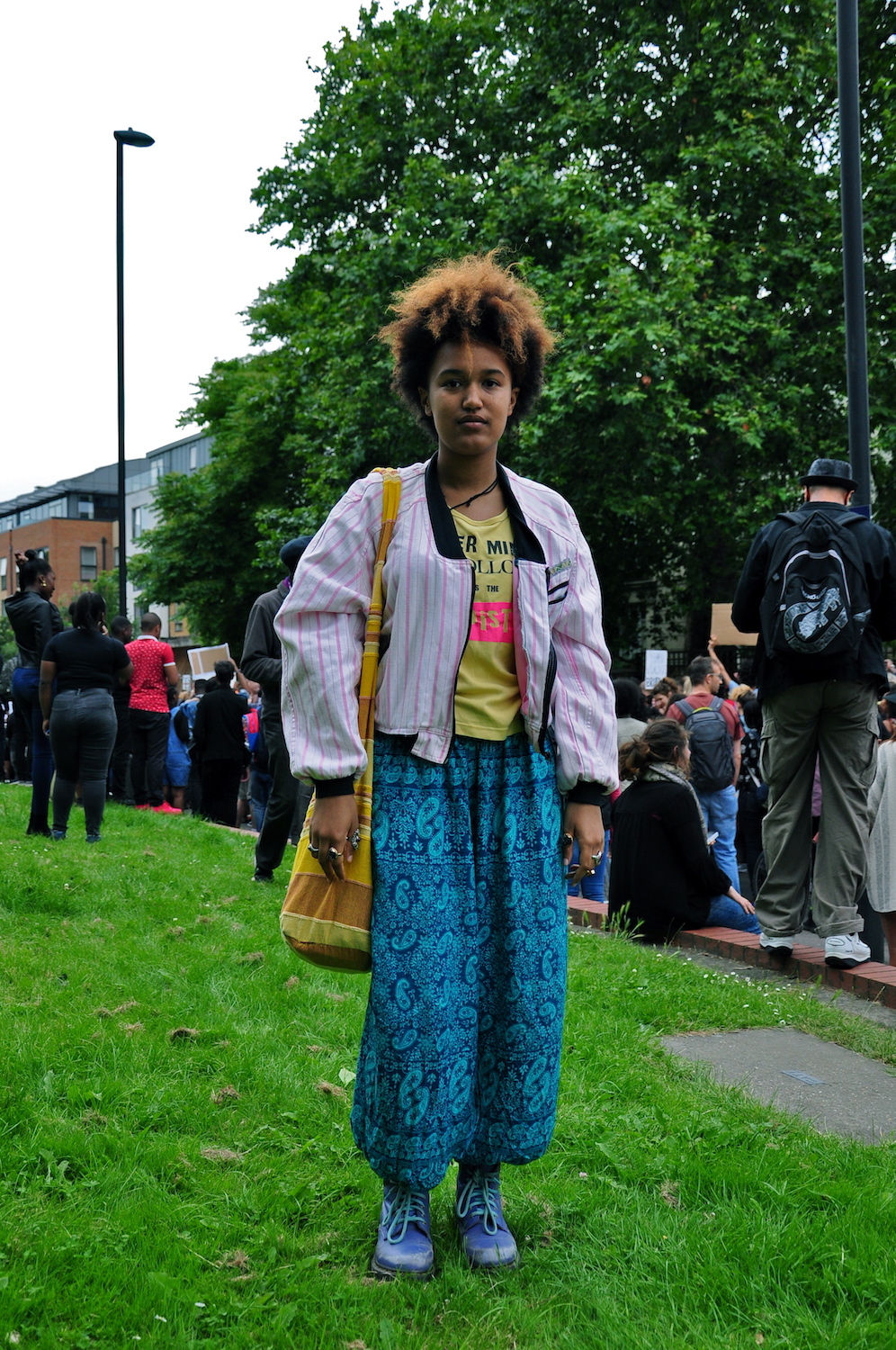
Saskia
Why are you here today?
I want there to be change for black people. I’m here in response to the recent killings, but also the long history of violence against black people.
What’s your message to Black Lives Matter activists in the USA right now?
Keep going: we will support you every step of the way. What you’re doing is so inspiring.
What’s your message to the UK government?
They need more black women in positions of power and in the cabinet to be making decisions for me, rather than the same old cis-white men.
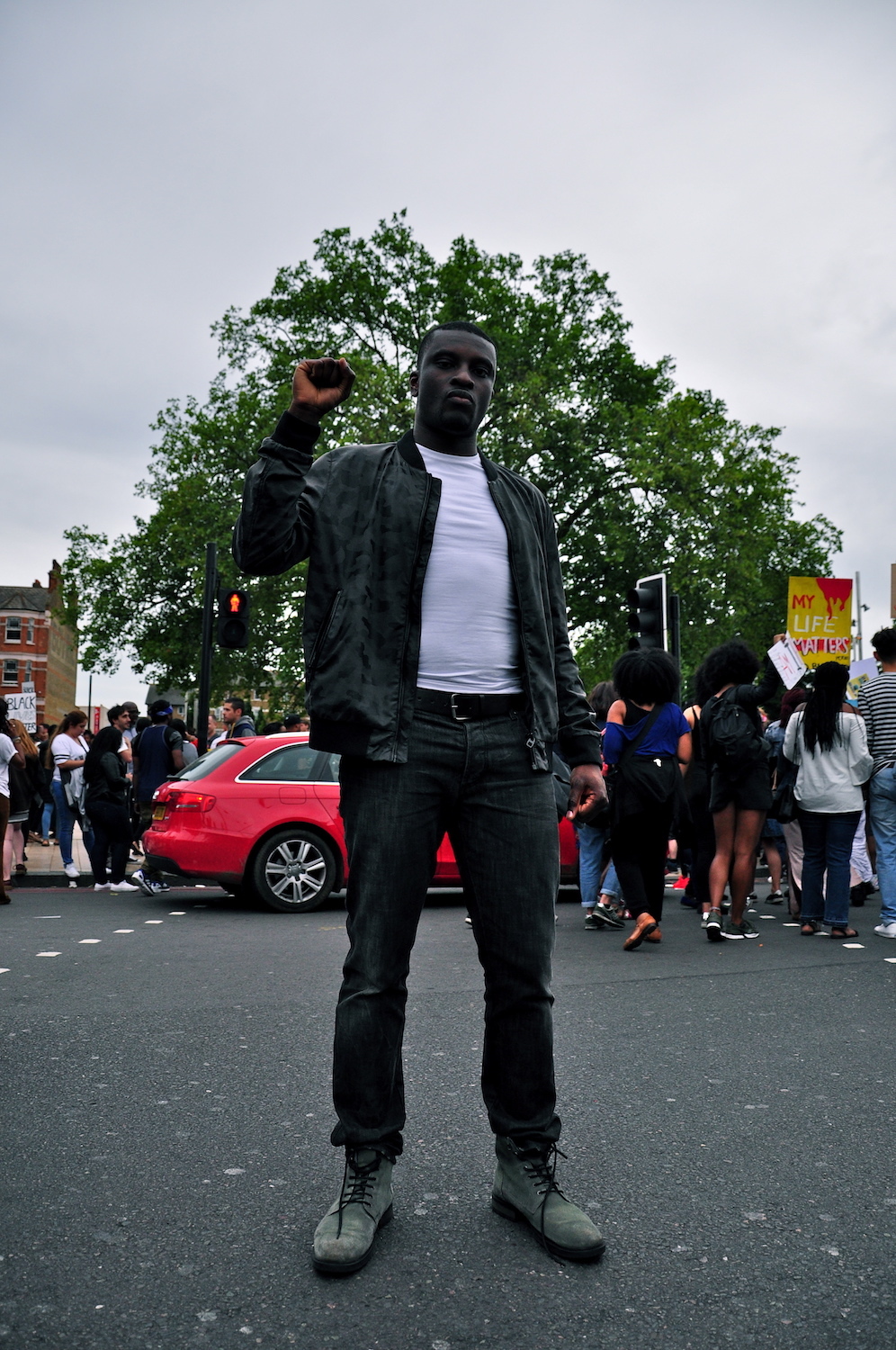
Felix
Why are you here today?
I’m here to support the movement. We’re a family, and what’s happening in the US is really disheartening.
What’s your message to Black Lives Matter activists in the USA right now?
You need to stay strong: we might be far away on the other side of the Atlantic, but we are thinking about you, our hearts are connected, and we share the same blood. Racism is everywhere. Minorities in general are pushed away and we’re gathering here to stand united, and to face our difficulties together, as a united people.
Credits
Text Edward Siddons
Photography Alice Zoo
